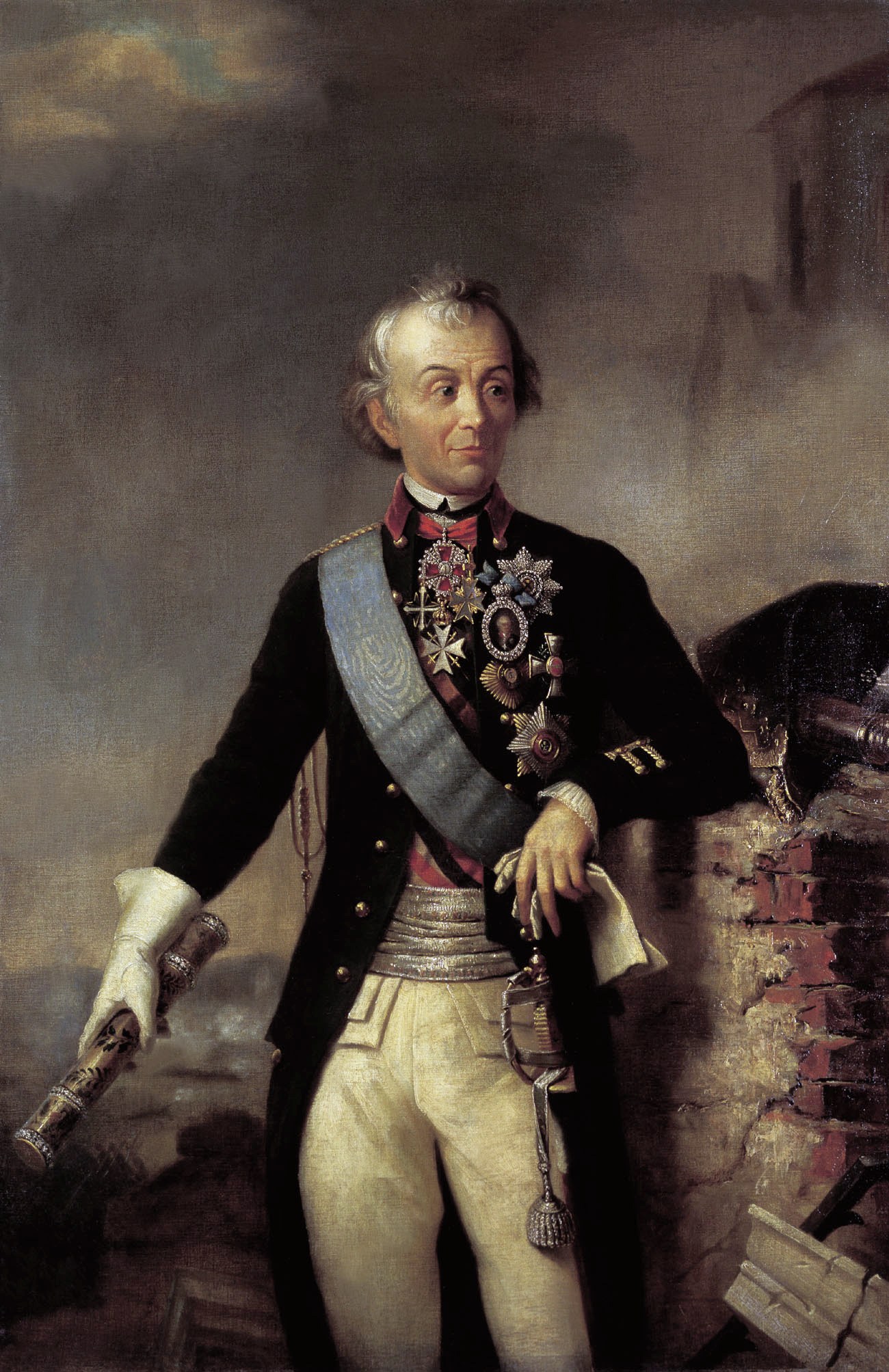Yesterday and Today, 1917-1967: Contemporaries Report on the Progress of German Soviet Friendship - Page 105 - by Verlag Zeit im Bild - Soviet Union - 1967.
Aleksandr Vasil'evič Suvorov: Frasi in inglese
other version: Hard training - easy combat; easy training - hard combat.
Philip Longworth: The Art of Victory, New York, 1965, cited in af.mil http://www.airpower.maxwell.af.mil/airchronicles/aureview/1986/nov-dec/menning.html.
“Drill your soldiers well, and give them a pattern yourself.”
Quoted in W. Lyon Blease, "Suvorof," 1926.
"The Art of Victory: The Life and Achievements of Field Marshal Suvorov" - Page 217 by Philip Longworth - 1966.
other version: One minute can decide the outcome of the battle, one hour - the outcome of the campaign, and one day - the fate of the country.
"Encyclopedia of Russian History" - Page 1504 by James R. Millar - Soviet Union - 2004.
“The bullet is a fool, the bayonet is a fine chap.”
Nauka pobezhdat, Dokumenty, vol. III, p. 504, cited in af.mil http://www.airpower.maxwell.af.mil/airchronicles/aureview/1986/nov-dec/menning.html.
Compare with "The bullet is a mad thing; only the bayonet knows what it is about." from "The Science of Victory," 1796.
"The Book of Military Quotations" - Page 124 by Peter G. Tsouras - Reference - 2005.
“To surprise the enemy is to defeat him.”
As Military Adviser in China - Page 245 by Aleksandr Ivanovich Cherepanov - China - 1982.
Quoted in V. Ye. Savkin, "Basic Principles of Operational Art and Tactics," 1972.
“Fire opens the gates of victory.”
From "The Science of Victory," 1796, quoted in Bragin "Field Marshal Kutuzov," 1944.
“No battle can be won in the study, and theory without practice is dead.”
Quoted in K. Ossipov, "Suvorov", 1945.
“Fortune seized at the right moment gives victory.”
"Political Affairs" - Page 1005 by Earl Browder.
From "The Science of Victory," 1796.
“Exercises cultivated self-reliance - the foundation of courage.”
Quoted in Ossipov, "Suvorov," 1945.
“The more comfort the less courage there is.”
"The Book of Military Quotations" By Peter G. Tsouras - Page 101.
“If we had not driven them into hell… hell would have swallowed us.”
About the Battle of Kinburn, 1787, from "The Book of Military Quotations" By Peter G. Tsouras - Page 138.
“Judgment of eye, speed and attack are the basis of victory.”
Readings in Russian History - Page 694 by Warren Bartlett Walsh - Soviet Union - 1959.
About the Polish deaths in the storming of the fortified Praga suburb in Warsaw on October 15, 1794, during the Polish revolt, quotes in Philip Longworth, "The Art of Victory", 1966.
“One cannot think that blind bravery gives victory over the enemy.”
The Book of Military Quotations By Peter G. Tsouras - Page 55.
“Accustom yourself to tireless activity…”
"The Book of Military Quotations - Page 23 by Peter G. Tsouras - Reference - 2005.
